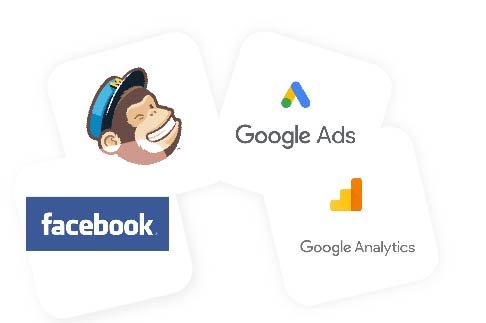Best Free & Paid Gmail Alternatives (2025): Secure, Feature-Rich, and User-Friendly Email Apps
Looking for the perfect Gmail alternative in 2025? Whether you’re concerned about privacy, need advanced business features, or simply want a fresh email experience, this comprehensive guide covers the top free and premium email clients available today.
From privacy-focused options like ProtonMail to feature-rich business solutions like Outlook, we’ve tested and compared the best Gmail alternatives to help you make an informed decision.
Quick Comparison: Gmail Alternatives at a Glance
| Email Service | Price | Storage | Key Features | Best For |
|---|---|---|---|---|
| Outlook | Free/Premium | 15GB/50GB+ | Microsoft integration, Calendar | Business users |
| ProtonMail | Free/Premium | 500MB/500GB+ | End-to-end encryption | Privacy-conscious users |
| Zoho Mail | Free/Premium | 5GB/50GB+ | Business suite, Custom domains | Small businesses |
| Yahoo Mail | Free | 1TB | Large storage, News integration | Personal use |
| Fastmail | Premium only | 2GB-100GB+ | Advanced features, IMAP support | Power users |
| Tutanota | Free/Premium | 1GB/1TB+ | German privacy laws, Encryption | Security-focused users |
| Mail.com | Free/Premium | 2GB/50GB+ | Multiple domain options | Domain variety seekers |
| Mailbox.org | Premium only | 2GB-100GB+ | Green hosting, Calendar sync | Eco-conscious users |
| iCloud Mail | Free | 5GB | Apple ecosystem integration | Apple users |
| HubSpot | Free/Premium | Unlimited | CRM integration, Sales tools | Sales & marketing teams |
Top Gmail Alternatives: Detailed Reviews
1. Microsoft Outlook
Price: Free (Outlook.com) / Premium (Microsoft 365)
Storage: 15GB free / 50GB+ premium
Website: outlook.com
Microsoft Outlook remains one of the most popular Gmail alternatives, offering seamless integration with the Microsoft ecosystem and robust business features.
Key Features:
- Advanced calendar and scheduling
- Microsoft Office integration
- Powerful spam filtering
- Multiple account support
- Mobile apps for iOS and Android
Pros:
- Excellent for business users
- Strong calendar features
- Good mobile apps
- Reliable uptime
Cons:
- Interface can be overwhelming
- Limited customization options
- Privacy concerns with Microsoft
Best For: Business professionals, Microsoft Office users, teams requiring shared calendars
2. ProtonMail
Price: Free / Premium ($4-30/month)
Storage: 500MB free / Up to 500GB premium
Website: protonmail.com
ProtonMail is the gold standard for privacy-focused email, offering end-to-end encryption and Swiss privacy protection.
Key Features:
- Zero-access encryption
- Self-destructing messages
- Anonymous sign-up
- Tor network support
- Custom domains (premium)
Pros:
- Unmatched privacy and security
- No ads or tracking
- Swiss privacy laws protection
- Beautiful, intuitive interface
Cons:
- Limited free storage
- Some features require premium
- Slower than traditional email
Best For: Privacy advocates, journalists, activists, security-conscious professionals
3. Zoho Mail
Price: Free / Premium ($1-4/user/month)
Storage: 5GB free / Up to 50GB+ premium
Website: zoho.com/mail
Zoho Mail excels as a business email solution with comprehensive productivity tools and affordable pricing.
Key Features:
- Custom domain support
- Integrated office suite
- Team collaboration tools
- Calendar and task management
- Mobile apps
Pros:
- Great value for businesses
- No ads even in free version
- Comprehensive productivity suite
- Excellent customer support
Cons:
- Interface feels dated
- Limited integration with third-party apps
- Learning curve for new users
Best For: Small businesses, teams, users wanting integrated productivity tools
4. Yahoo Mail
Price: Free (Ad-supported)
Storage: 1TB
Website: mail.yahoo.com
Yahoo Mail offers generous storage and news integration, making it ideal for personal use.
Key Features:
- Massive 1TB storage
- News and weather integration
- Powerful search functionality
- Disposable email addresses
- Mobile apps
Pros:
- Huge storage space
- Free with no storage limits
- Good spam filtering
- News integration
Cons:
- Ad-supported
- Privacy concerns
- Occasional security breaches
- Interface can be cluttered
Best For: Personal users needing lots of storage, news enthusiasts
5. Fastmail
Price: Premium only ($3-9/month)
Storage: 2GB-100GB+
Website: fastmail.com
Fastmail targets power users with advanced features and excellent performance.
Key Features:
- Lightning-fast performance
- Advanced IMAP support
- Custom domains included
- Powerful filters and rules
- Calendar and contacts sync
Pros:
- Exceptional speed and reliability
- Advanced features for power users
- No ads or tracking
- Excellent mobile apps
Cons:
- Premium-only service
- Can be complex for beginners
- Limited free trial
Best For: Power users, developers, professionals requiring advanced email features
6. Tutanota
Price: Free / Premium (€1-8/month)
Storage: 1GB free / Up to 1TB+ premium
Website: tutanota.com
Tutanota offers German-engineered privacy with automatic encryption for all emails.
Key Features:
- Automatic encryption
- Calendar integration
- Custom domains
- Secure password recovery
- Mobile apps
Pros:
- Strong privacy protection
- Affordable premium plans
- User-friendly interface
- German privacy laws
Cons:
- Limited third-party integrations
- Smaller ecosystem
- Some advanced features missing
Best For: Privacy-conscious users, European users, budget-minded security seekers
7. Mail.com
Price: Free / Premium ($2-5/month)
Storage: 2GB free / Up to 50GB premium
Website: mail.com
Mail.com stands out with hundreds of domain options for personalized email addresses.
Key Features:
- 200+ domain options
- Spam and virus protection
- Mobile apps
- Calendar integration
- File storage
Pros:
- Unique domain selection
- Good free plan
- Reliable service
- Multiple language support
Cons:
- Limited advanced features
- Interface needs modernization
- Smaller user community
Best For: Users wanting unique email addresses, international users
8. Mailbox.org
Price: Premium only (€1-9/month)
Storage: 2GB-100GB+
Website: mailbox.org
Mailbox.org focuses on sustainability and privacy with green hosting and strong security.
Key Features:
- Green hosting (100% renewable energy)
- Calendar and contacts sync
- Custom domains
- Encryption support
- German privacy protection
Pros:
- Environmentally friendly
- Strong privacy focus
- Affordable pricing
- Good feature set
Cons:
- No free tier
- Limited brand recognition
- Smaller ecosystem
Best For: Environmentally conscious users, privacy advocates, European users
9. iCloud Mail
Price: Free (with Apple ID)
Storage: 5GB (shared with iCloud)
Website: icloud.com
iCloud Mail integrates seamlessly with Apple devices and services.
Key Features:
- Perfect Apple ecosystem integration
- Push notifications
- Sync across all Apple devices
- Clean, minimalist interface
- Built-in spam filtering
Pros:
- Seamless Apple integration
- Beautiful interface
- Reliable sync
- Good privacy practices
Cons:
- Limited to Apple ecosystem
- Basic features only
- Shared storage with iCloud
- Not ideal for non-Apple users
Best For: Apple users, iPhone/iPad/Mac owners, users wanting simple email
10. HubSpot
Price: Free / Premium ($45-1200/month)
Storage: Unlimited
Website: hubspot.com
HubSpot combines email with powerful CRM and marketing tools.
Key Features:
- CRM integration
- Email tracking and analytics
- Marketing automation
- Sales pipeline management
- Team collaboration
Pros:
- Comprehensive business solution
- Unlimited storage
- Powerful analytics
- Great for sales teams
Cons:
- Overkill for personal use
- Can be complex
- Higher learning curve
- Premium features are expensive
Best For: Sales teams, marketing professionals, businesses needing CRM integration
How to Choose the Right Gmail Alternative
When selecting a Gmail alternative, consider these key factors:
1. Privacy and Security
If privacy is your top concern, consider ProtonMail or Tutanota. These services offer end-to-end encryption and operate under strict privacy laws.
2. Business vs Personal Use
For business use, Outlook, Zoho Mail, or HubSpot provide professional features. For personal use, Yahoo Mail or iCloud Mail might suffice.
3. Storage Requirements
Yahoo Mail offers 1TB free, while ProtonMail’s free tier provides only 500MB. Consider your storage needs carefully.
4. Integration Needs
If you use Microsoft Office, Outlook is ideal. Apple users should consider iCloud Mail. For CRM needs, HubSpot excels.
5. Budget Considerations
Free options include Outlook, Yahoo Mail, and iCloud Mail. Premium services like Fastmail and Mailbox.org offer advanced features for a fee.
Migration Tips: Switching from Gmail
Before You Switch:
- Export your Gmail data using Google Takeout
- Update account information on important services
- Set up email forwarding during the transition period
- Inform contacts about your new email address
- Test the new service thoroughly before fully switching
Migration Tools:
- Most email providers offer import tools for Gmail
- Use IMAP to sync existing emails
- Consider gradual migration rather than immediate switching
Conclusion
Choosing the right Gmail alternative depends on your specific needs, privacy concerns, and feature requirements. Whether you prioritize security (ProtonMail), business features (Outlook), or simplicity (Yahoo Mail), there’s an excellent alternative available.
For most users, we recommend:
- Privacy-focused: ProtonMail
- Business use: Microsoft Outlook or Zoho Mail
- Personal use: Yahoo Mail or iCloud Mail
- Power users: Fastmail
- Budget-conscious: Tutanota
Remember to test your chosen alternative thoroughly before making the complete switch from Gmail. Most services offer free trials or free tiers that let you explore their features risk-free.
Have you tried any of these Gmail alternatives? Share your experience in the comments below!
 Our Motto : Keep it simple
Our Motto : Keep it simple
 contact :
contact : 
